Anthony, Piers - Geodyssey 2 - Shame of Man
VIP免费
2024-12-06
0
0
1.98MB
304 页
5.9玖币
侵权投诉
Piers Anthony
Shame of Man
Geodyssey: Volume 2
CONTENTS
INTRODUCTION
CHAPTER 1
GRACILE
CHAPTER 2
GARDEN
CHAPTER 3
RIFT
CHAPTER 4
FIRE
CHAPTER 5
GIANT
CHAPTER 6
FLOOD
CHAPTER 7
DREAM
CHAPTER 8
MUSIC
CHAPTER 9
HORSE
CHAPTER 10
SKARA BRAE
CHAPTER 11
PHILISTINE
CHAPTER 12
PHOENICIAN
CHAPTER 13
YAYOI
CHAPTER 14
MOSLEM
CHAPTER 15
MYSTERY
CHAPTER 16
MISTAKE
CHAPTER 17
TERRANOVA
CHAPTER 18
TAIPING
CHAPTER 19
EARTH FIRST!
CHAPTER 20
TASMANIA
AUTHOR'S NOTE
INTRODUCTION
THIS is the second part of the Geodyssey series, following Isle of Woman, concerning the
evolution, history, and nature of mankind. It is based on research and speculation, and not all of its
assumptions are approved by contemporary authorities. It explores aspects of our species more
thoroughly than before and draws some new conclusions, some of which are conjectures of the author
rather than accepted anthropology. For example, this volume sees the divergence of man from the
chimpanzee as occurring about six million years ago, and the pygmy chimpanzees, or bonobos,
diverging from the chimpanzees about three million years ago. The so-called Aquatic hypothesis is
accepted, though it may not be in the third volume. And one reason for mankind's present ascendance
may be—fleas. The prior volume followed two seeming families through three generations. Blaze and
Ember were ordinary people amidst the larger human adventure. This one follows one family through
one generation, in similar fashion: it is as if its members are reappearing in subsequent times as they
have been before. The point is that all human beings are related, and we can identify particular types
throughout human history. Human nature has been fairly constant through recent millennia; it is the
scenery and circumstance that have changed. Shame of Man shows the family of Hu or Hue or Hugh or
Huuo, who would have been Blaze's distant ancestor or perhaps cousin. Other characters carry through
in similar roles as the novel progresses, though they may not be perfectly consistent from chapter to
chapter. Thus what happens in one chapter may or may not be part of the background of another, and
characters who know each other in one may not associate the same way in another. They are only
approximations, representative of types and situations. Each member of the core family ages a year with
each chapter, though the action sequences may be continuous. As before, there are area maps and
discussions surrounding each setting. Some of these notes become rather long and detailed, as in Chapter
7, because the subject is complicated. Those readers who prefer merely to enjoy the ongoing story may
ignore these, and the somewhat technical concluding Author's Note.
Because this volume covers different aspects of the same larger story of mankind, portions skirt or
overlap the prior volume. Some of the previous characters make appearances here as secondary figures.
Because of the reduction to a single generation, the alignments are not perfect. But in a general way, the
characters of each novel are presented as they are at whatever stage of history is represented. Since the
larger picture has all people existing at all times, there is no anachronism. They are as they seem when
shown.
The span of time explored has been expanded for this volume, and covers eight million years. Thus
it begins well before true-mankind emerged from the line of primates. However, most of the characters
are introduced early, and will appear again later in the novel. As a general rule, only the named
characters are important.
CHAPTER 1
GRACILE
The Great Rift of East
Africa is a fascinating region. It
is one terminus of a system of
plate tectonics—that is, drifting
continents—that traverses the
globe of Earth. Our world seems
to be boiling like a slow pot of
mush, with hot lava welling up
along a series of fault lines,
pushing the existing surfaces
apart, and in the process moving
the continents around like ungainly checkers. If we
trace that line of fire, we find it circles Africa clockwise, splitting in the Indian Ocean to send one rift
looping around the Pacific Ocean, forming the "Ring of Fire" there and touching America to form the
San Andreas Fault. Meanwhile the other fork proceeds from the Indian Ocean to complete its circuit of
Africa, moving north to form the Mid-Atlantic Ridge, passing the North Pole, entering Siberia at the
Lena River Delta, tunneling under until it surfaces again at Lake Baikal, then carries across Asia to
Turkey and the Mediterranean Sea, where it plunges down through the Red Sea, and finally ties back
into Africa at the Great Rift where it started. There has always been a whole lot happening along this fire
line, and it may also account for mankind's emergence as the dominant species of the planet.
In Africa itself, the Rift proceeds roughly south from the point where the corner of Arabia almost
touches it—that point being known as the Afar Triangle—through modern Ethiopia, Kenya, Uganda,
Tanzania, Zaire, Zambia, and Mozambique. In simpler terms, it is a thirty-five-hundred-mile system
slicing off the eastern segment of the continent. About halfway along, it divides into two branches,
forming a great crude circle that encloses Lake Victoria. Geologists don't seem to know why it divides,
but the answer seems obvious to the uninformed: this is the site of a meteor strike that tore up the
landscape so badly that the Rift itself was fractured and had to detour around, leaving the crater to fill
with refuse and water and form the lake. Something similar evidently happened at Iceland, which lies
astride the Mid-Atlantic segment of the fire line.
This is rough country, with Africa's highest point—Mt. Kilimanjaro—and lowest point—in the Afar
Triangle—both associated with the Rift. It is bounded by the great Sahara Desert in the north and the
jungle of the Congo in the south. Within the Rift there is constant volcanic activity; its inlet in the Afar
Triangle, lined with volcanic cones, is called "The Devil's Throat," and its low Danakil Depression has
been described as the "Hell-Hole of Creation." Lions, hyenas, elephants, and the Cape buffalo range the
Serengeti Plain southeast of Lake Victoria. Lake Malawi at its southern extreme has more fish species
than any other lake in the world. What kind of primate would leave the protection of the jungle and
choose to live here? Perhaps only one who was desperate, and hungry, and smart enough to survive its
hazards. As it turned out, mankind.
But not quite yet. The time is approximately eight million years ago, and the place is central Africa
near the Equator, on the eastern slope of the western branch of the Rift. Today the remnant of the
mountain gorilla lives there, and it is part of the much wider range of the more versatile chimpanzee. But
back then the two species were diverging from a common ape ancestor, and the smaller, thinner
cousin—the "gracile" one—had to give way to the "robust" one. This led in some cases to a forced
extension of the range. Most chimps were displaced westward; one band went where none other had
dared, east over the volcanic ridge. This was not bravery but the luck of the draw; they couldn't get
around the gorillas, so had to retreat where they would not be pursued. The immediate outlook was not
promising.
HU lifted on his hind legs and gazed at trees on the slope below. The brutes were there, making
threatening gestures. The trees of home had been occupied by stronger foreigners.
"Come!" Hu recognized his mother's urgent call. He dropped to four feet, turned, and scampered up
the slope to join her. His little sister Be was doing the same.
They had foraged often on this slope, finding bugs and berries and caches of water in crevices. Hu
was well familiar with it. But there were times when the mountain trembled and smoke spouted from its
mouth, frightening them away. Now they were going toward that mouth. That wasn't safe, for no one
could know when it might spout again.
But there was nowhere else to go, because of the brutes below. Hu's father, the dominant male, had
tried to hold his territory, but the brutes were just too big. So he and several other males were taking
their families away, seeking some better place. They had to move out before the brutes came after them,
to take their women and kill their children. Hu had seen what happened to a neighboring band whose
male had fought and lost. They all had seen. The women were not actually used by the brutes, but
became tolerated outcasts, allowed to feed themselves until a brute female or adolescent male became
annoyed and attacked. So the end was the same for the spared women; it just took more time, because
they weren't deemed to be threats.
Hu and Be scrambled after their mother, just as the other children were after their mothers. She was
no larger than Hu himself, but she ruled him until he chose to leave the family. Near them were Ra and
Fa, following their mother. They were children of Hu's father, because the dominant male mated with all
the women in the band. That made them close kin; they had the kin smell. Hu got along well with them,
and they often groomed each other, picking out the bugs in their fur. When there was any alarm, and the
mothers weren't close by, Hu and Be usually grouped with Ra and Fa.
The climb went on and on. The mountain trembled almost continuously, but they were getting used
to that. They could tell when the mountain was feeling angry, and right now it was merely irritable.
As the day waned, they got beyond familiar territory. The group closed in together, becoming
nervous; none of them liked strange land. There were too many dangers in the unknown.
But they were lucky, or perhaps the big males had been here long ago and knew where to look.
There was a cave. It wasn't deep, but it was big enough to shelter the bands. There were several recesses,
and one male took over each recess, putting his mates and children there. They would be safe here. It
wasn't as good as a tree, but it was better than the open slope. Especially since the mountain was
rumbling louder now, with smoke rising from its top, and some rocks were shaking loose and sliding
down the steeper slopes. There was a pile of rocks before the cave, but not many inside. They would be
good to heave at predators.
There were berry patches nearby, growing in furrows and gullies in the slope. They were rich with
ripe berries because no one had been this far to pick them before. Immediately the women and children
went out to eat. Hu dashed for the nearest patch, but a male growled him off. He had to go farther out.
This was happening more as he got older; the big males were starting to notice him, and not with favor.
He moved on out. There was a cry, and Be was scampering after him. Hu was disgusted; she would
slow him. She had been weaned only the year before. But she was his little sister, close kin, and he had
to accept her. So he waited for her to catch up, and then they went on together.
Other young folk were spreading out, seeking untouched berry patches in the hollows of the slope.
Those who first spied a good patch stood guard over it, reserving it for their own siblings. Hu didn't
want to fight; he was already tired from the long climb. So he went on beyond, Be beside him.
Be was agile enough. She scampered up a steep ridge to a crevice above—and paused, with an
exclamation of awe.
Hu knew that she didn't make that sound for nothing. Young as she was, she was learning the key
danger sounds, and would not utter them randomly. But this was not quite danger; it was more like
mystery. So he had to investigate. It might be something she didn't know was dangerous.
He mounted the ridge, grabbing handholds and hauling himself up. He reached her side, and
followed her gaze ahead.
It was indeed different. Beside the ridge was a deep crevice, and from it warm air gusted. He
squinted, peering into it. There was light in there, like that of the sun on a dim day. There was an odd
sound, not quite like water running, and a strange hot smell. Hu did not understand this, and for that
reason he did not like it.
But before he could warn Be away, she spied something new. Beyond the crevice was a fine patch
with many large ripe berries. She bounded over the crevice and began to pick them, greedily eating.
Hu hesitated. That burning light in the crevice—could it hurt them? He wanted to know more about
it before trusting it. Besides, he was curious. His curiosity had on occasion gotten him in trouble, such as
when he had ventured too close to a copulating couple and put his nose in the way, but it had also
enabled him to discover interesting things. So he had two reasons to explore this situation.
He followed the cleft, sniffing the fumes. It led down the slope, seeming to be a crack in the
mountain, like an open cut. Was he seeing past the mountain's skin to the blood inside? Did the
mountain hurt? Was that why it was rumbling? He knew how a deep cut could sting. But what could
have made such a cut in so big a hill? No lion could have done it, and no elephant either.
There was a cry. That was Be's distress call. Hu spun around and leaped back toward the berry
patch. What mischief had she gotten into?
He saw a larger form by the patch. It was Ss, the nasty child of one of the other dominant males, a
year younger than Hu. He had never gotten along with her or her brother Bb, because they were always
doing something mean.
Ss didn't see Hu. She was stalking Be, trying to drive her away from the berry patch. Naturally Ss
wanted all the berries for herself. As Hu loped toward them, he saw Ss pounce on Be and lift the child
into the air. Be struggled, terrified. Ss carried her to the deep crevice, about to throw her in. Be
screamed, her arms and legs flailing helplessly.
Then Hu reached them. He snatched Be away, hugging her, keeping her safe. Ss screamed with
frustration. She seemed about to attack Hu, but she was smaller as well as female, so could not win.
There was a sound behind Hu. He turned cautiously, so as not to leave Ss at his back, and saw her
brother Bb advancing on them. Bb was Hu's age, but larger; he could win a fight. Hu and Be would have
to give up their berry patch and flee, because they could not match the nasty pair. It was too bad,
because the patch was theirs; latecomers were supposed to honor the choices of the early comers. Hu
was hungry; he realized he should have started eating immediately, instead of getting distracted by the
curious crevice.
But then two more figures appeared. Ra and Fa! They were kin and friends. They were a year
younger than Ss, but both could fight well. Now the kin were more than the foreign ones, and they
would be able to hold the patch.
Hu called, and Ra and Fa immediately scrambled up the slope to join them. Then the three of them
stood before Bb and Ss, snarling, keeping little Be behind them.
Bb snarled in return, threatening to fight. But when Hu advanced, he retreated. He never liked to
fight when he wasn't sure of winning, and he couldn't win against two males, even if neither was quite
his size. Fa, though a year younger than Ss, could nevertheless prevent her from helping her brother
fight. So Bb retreated, and Ss retreated with him. In a moment they turned and ran away.
Hu, Ra, and Fa smiled at each other. Then they settled down with Be to eat the berries. The little
fruits were wonderful. The funny thing was that Hu used one forefoot to pick most of his berries, while
the other three used the other forefoot. But all of them could use either foot, when they thought about it,
so it didn't matter.
In due course the four made their way back across the hot crevice and down the slope to the cave.
Their mothers were waiting for them. It was good to be home, even if it wasn't much like their trees.
Θ
Next day they moved on up the slope, foraging as they went. The mountain was rumbling less, but
they were getting closer to the smoke. Hu saw the others cringe as clouds of the smoke came out and
spread toward the group. They were afraid of anything strange. Hu, in contrast, was attracted to oddities,
and the more dangerous they seemed, the more he wanted to know about them. His curiosity warred
with his fear, sometimes leaving him standing bemused, unable either to advance or to retreat. He was
especially sensitive to sounds; they fascinated him, and odd ones could lure him beyond safety. He
seemed to hear qualities of sounds that others ignored, so had given up on getting any support for this
interest. The sounds of the fire mountain had power and resonance unlike others, as if a giant lion
struggled within.
But smoke had never actually harmed him or anyone he knew before. It came from fire, and fire
was hot and hurtful but could be avoided because it burned only on the grassy valley below their forest.
And, perhaps, inside the mountain. So Hu wanted to know more about smoke, and was glad to be
approaching it.
However, the leaders were wary, and when the slope allowed it, they moved around to the side of
the mountain. There were more bugs and berries there, and it did seem safer.
But then they entered a high sort of valley between this mountain and the next. The slope above was
steep and bare and hot in the sun; the slope below became a narrowing crevice. There was a bad smell
that made them cough and choke.
They paused, milling. There did not seem to be anywhere to go forward. But there weren't enough
berries this high to sustain them, and behind were the brutes.
Hu, as curious as ever, decided to explore the crevice. Be scampered after him, thinking he knew
where he was going. He would not have signaled it, but he found her company reassuring. He could not
take any bad risks when she was with him, because he had to protect her. That made it safer for him, too.
When the slope got too hot and steep, they moved down into the crevice. It was wider than it had
looked from above, but scary too, because its walls were very high and close together. There was just
room to walk at the base. But Hu saw that up ahead the walls became so bare that it would not be
possible to climb them. If anything rolled down, he and Be would be crushed. Indeed, there was a pile of
stones there that they had to climb over.
They stood on the top of the pile and looked on into the crevice. Wisps of vapor floated up from
vents in the ground, and there was a faint but ominous hissing. The smell was bad. This was far enough
to go.
Be tugged at his hand. She was frightened, and wanted to go back. That was a good enough pretext.
So Hu shrugged and turned, pretending to humor her.
There was activity behind them. Someone else was following. At first Hu was glad, because he
thought he could show off what he had found. Then he recognized Bb and Ss.
This was a problem, because he knew they meant mischief. They were still mad because they hadn't
gotten the berry patch yesterday. Now they wanted to fight, and there was no grown kin to support Hu.
What was he to do?
The sensible course was to run away. But they were blocking off the only escape. The walls did not
seem any more scalable than before; only the bottom of the crevice was suitable. Bb knew that. He knew
he had Hu trapped. He knew that no one else was close enough to intercede.
Hu turned again and looked forward. The crevice looked as forbidding as before. The evil vapor
swirled in it, so that Hu could not see what was beyond. The hissing seemed louder now, like that of a
restive snake. That was no place for a person to go.
There was a sound behind as Bb and Ss advanced. Normally females fought only among
themselves, or to protect their children, but Ss often fought to support her brother. She was aggressive
and vicious. Like her brother. Hu had little chance against Bb in a fair fight, and with Ss chomping his
back, he had even less. She was really worse than Bb, because she was not being true to the nature of her
gender.
Hu turned once more. He peered down through the steaming crevice. That might be doom—but so
might a fight with Bb. He couldn't afford to get beaten, when he had Be to protect.
Bb was getting close. He leaped to the base of the rock pile. Hu leaped off it, into the crevice ahead.
He called to Be to follow. This seemed to be the lesser risk, and now that he had made the decision, he
felt his curiosity about what lay ahead. He had wanted to explore farther, but hadn't dared. Now there
was as much of a threat behind as ahead, so it was easier to go on.
Be scampered close behind him. She was afraid too, but trusted Hu to keep her safe.
摘要:
展开>>
收起<<
PiersAnthonyShameofManGeodyssey:Volume2CONTENTSINTRODUCTIONCHAPTER1GRACILECHAPTER2GARDENCHAPTER3RIFTCHAPTER4FIRECHAPTER5GIANTCHAPTER6FLOODCHAPTER7DREAMCHAPTER8MUSICCHAPTER9HORSECHAPTER10SKARABRAECHAPTER11PHILISTINECHAPTER12PHOENICIANCHAPTER13YAYOICHAPTER14MOSLEMCHAPTER15MYSTERYCHAPTER16MISTAKECHAPTE...
声明:本站为文档C2C交易模式,即用户上传的文档直接被用户下载,本站只是中间服务平台,本站所有文档下载所得的收益归上传人(含作者)所有。玖贝云文库仅提供信息存储空间,仅对用户上传内容的表现方式做保护处理,对上载内容本身不做任何修改或编辑。若文档所含内容侵犯了您的版权或隐私,请立即通知玖贝云文库,我们立即给予删除!
分类:外语学习
价格:5.9玖币
属性:304 页
大小:1.98MB
格式:PDF
时间:2024-12-06




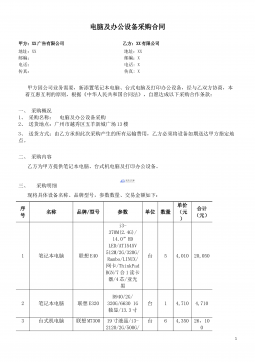

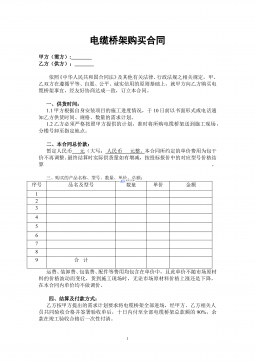
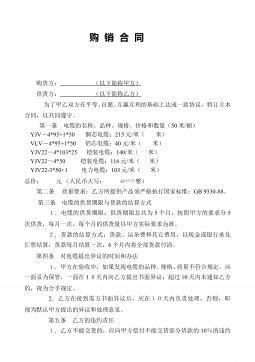


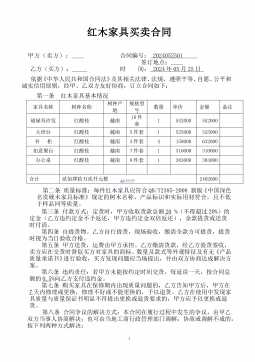



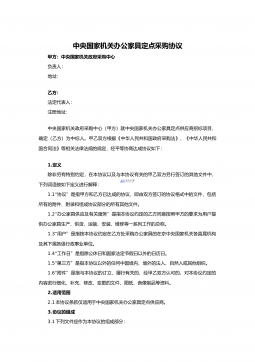


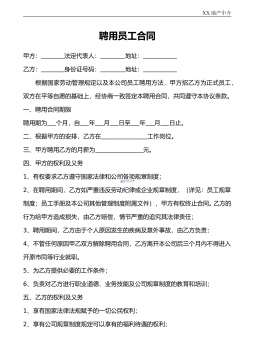
 渝公网安备50010702506394
渝公网安备50010702506394
